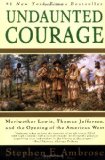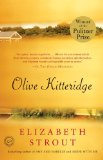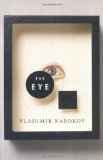How I Got a Word into the Oxford English Dictionary
June 26, 2008
You can mark this as one of the more exciting days of my life. Let me back up.
I grew up in a household where one respected the Oxford English Dictionary. We had the condensed version, two enormous volumes with a special drawer to hold a magnifying glass with which to examine the shot-down copy. I’m sure my mother coveted the full 20-volume edition, but the second edition didn’t even come out until 1989 and right now has a street price approaching a thousand dollars.
Once I escaped adolescence, I had my own fully-formed lexical passion. The OED became a symbol of pure scholarship, reverence for the language, glowing hotly in my psyche. When I was 22, a group of friends and I pooled money and bought the OED (again, condensed version–even those are about $250) for a friend. Sadly, I do not even to this day, own my own. We stood around drinking beer and looking for weird words (I still remember from that day, one of my favorites: quaquaversal, “[d]ipping, pointing, or occurring in every direction.” In my jejune reckoning, I wanted to write a novel entitled “View from the Quaquaverse.”).
Soon thereafter I decamped for England, presumably for graduate studies but more accurately for dampness, inebriation and shiftlessness. Through a wild turn of coincidences involving the Baltic States and a motorcycle accident, I befriended one of my Matts (many know that all of my close friends in England were called “Matt,” this was “Wolverhampton Matt”). I must’ve let it drop that I had a serious hankering for the OED.
“Oh,” he said. “I have a friend who works on the OED.”
I thought he was full of it until he suggested that we head down to Oxford (I lived in Birmingham) for a weekend to visit said friend and his wife. In the interest of anonymity (I’m not sure he would want me recounting these tales in such a public forum), I’ll call him William. This first weekend visit turned into a few more.
As soon as I had verified that he indeed worked on the OED–in a capacity that identifies new words for inclusion, no less–I started in on my assault. It’s embarrassingly juvenile: I wanted him to consider the word “nugry,” promoted by my friend Tom, who was active on (I believe) alt.puzzles or somesuch similar problem-solving-related newsgroup. The definition of nugry? Essentially: “The third word in the English language ending in ‘-gry’”, existing for the sole purpose of being an answer to a puzzle-riddle I’ve long since forgotten. You can see why I failed in this regard.
Besides, William was fairly nonchalant (at best) about his occupation. He found it bemusing that I held such reverence for the establishment. “Eh,” he would say, “really we’re all just a bunch of tossers.”
One night we went to London to celebrate William’s birthday. We all went to a pub in Camden Town called, if memory serves, the Ram and Tup (a rather bawdy reference!). Everyone got fair well plastered except myself and Matt. We trundled William into the back of Matt’s car, all spinny-headed and dreamy. I was sitting in the passenger seat.
“Lyza. I have something that is going to make your week.”
“Yeah?”
“Your word is going to be in the next edition.”
“Really?!”
“Except not the one you think. I kept hearing you use ‘food coma.’ I did some research and it turns out it is in common enough usage. So it will be there. The definition will be ‘a lethargic state induced by eating too much food.’”
“William, you just made my year.”
That was 2001. The full Third Edition of the OED is not due out until something wild like 2018 or 2037. Over the years, I’ve told the story, but my own belief of it had flagged. Maybe William was making fun of me. Maybe he didn’t work for the Oxford English Dictionary at all (and actually, there’s no one listed on Oxford’s staff page with his (real) name). Maybe he was just drunk. Maybe I imagined the whole thing.
This week I am reading The Meaning of Everything by Simon Winchester, a history of the creation of the OED. It has me rabidly enthused. Near frantic with interest. And so it occurred to me that I wanted to find out once and for all.
The Oxford University Press releases updates, towards its Third Edition, in the online version. It costs a fair chunk to subscribe to the online version, however, and I couldn’t be sure the “Fs” were all updated, at least not without legwork, and I’m lazy.
I emailed my mother this morning to ask if the Multnomah County Library was a subscriber. She emailed back to tell me that they not only subscribed, but anyone with a valid library card ID number could access it via the Library’s Web Site.
Holy Mackerel! I was over there in a flash, logged in and searched. Lo. And behold:
“food coma n. U.S. a lethargic state induced by eating, esp. a large quantity of (freq. rich or unhealthy) food.”
This has again made my year.
As an aside, the first known use of ‘food coma’, as cited in the entry, was in 1991. The source? alt.sex.bondage in message entitled “re: Threesome.”
30 Comments
Recently Reviewed
Get the Books
Read my Reviews
Related Posts
- Book Review: "The Meaning of Everything" by Simon Winchester
June 27, 2008 - The 5 Things Meme: Part I
January 8, 2007 - On a Lighter Note: The Things they Find me With
August 8, 2008 - My Library in the 4th Dimension
April 21, 2008 - Book Review: “Histories” by Herodotus (Landmark)
January 3, 2010




Good for you Lyza! I’m impressed and it is always fun to see one achieve/follow their dreams. Good on you gurl!
That’s awesome!
I guess that makes you kinda linguistically important or such.
Although you have yet to address the question posed by @pagent on Twitter, wondering if your usage of the term was at all related to the earliest noted usage of the term.
HAH!
I’m excited about this, because “food coma” and “OED” are already semantically related in my brain. See, my dad is also an OED (and Britannica) nut, and there have been many, many occasions when I would plop down with a dictionary or encyclopedia after a hearty battle with a buffet or BBQ. All us kids (and cousins, and aunts and uncles) chipped in to buy him the full OED for his retirement present, and it continues to be a marvelous inspiration for conversation when we visit.
On a sort of related tangent, the word “ornithorhynchus” (or-nith-or-inkus) is a real show stopper if you’re throwing down the spelling gauntlet. Some people call foul play because it’s Latin … but I consider it a valid because it was featured repeatedly on Mr. Rogers Neighborhood. Remember the platypus family in the Neighborhood of Make Believe? They would sing a song that included “Ornithorhynchus Anatinus” (aka, platypus) in the lyrics. I say fair play to anything referenced in Mr. Rogers Neighborhood.
Word.
This brings back fond memories of finding the OED full set in college and falling madly in love with the vast wealth of words it contained, plus fantastically detailed references to their origin and use.
Congrats, Lyza! What a fantastic accomplishment!
Lol omg that’s awesome!! Congrats :)
This brings back fond memories of finding the OED full set in college and falling madly in love with the vast wealth of words it contained
The story was great on its own, but the citation at the end is priceless.
It’s nice to know that I am not the only dictionary freak. People used to rail at me for being a “know-it-all” you pick up many marvelous bits of information. I once (50+ years ago) spent several day translating the “Jabberwocky” into modern english using my university librarys’ dictionary. Had to use a magnifying glass even with my young eyes.
Cuerrently beside my chair is an original edition “Random House Collegiate Edition” which has more than enough to entertain me.
I would be interested in Jabberwocky translations. Please send them to :
ugly1@mail.org
Thank you
I had always hoped that the word, “flesticle” would be included in the OED. It is defined as, “a word you can use when needing to rhyme with testicle.”
But my hopes were dashed.
and some of them were ‘dotted.’
I usually skim thru such stories but this one I read till the end.
Theres already a word that means the same thing. I forget what it is @tm but remind me to look it up in “the insomniac’s dictionary” when I finish unpacking in a couple days.
Right, but this is a *different* word.
“crazy” means (generally) “insane” but both words are in the dictionary.
There is also another word for your phenomenon – pastacoma. It is a bit more specific to the food origin (and quite possibly the name of a small village in Sicily).
I read this and hoped it wasn’t true… made such a neat piece of (almost) flash fiction.
Good story telling, anyway!
… if you ever write a story with dialog–preadolescent boys, Chicago, c. 1948-9… they would say “neat” a LOT. … pre- “cool,” but … being preadolescent boys, stuff other might not think so cool..
“Wow! Look at this, my big turtle bit the head of the little turtle!”
“Oh wow, NEAT!”
Nugry!!!
;-)
has anyone / everyone who reads this comment heard of / read “The Professor and the Madman” which is a provacative tale of the begginings of the OED with focus on a major contributor to those efforts who happens to be homicidally insane. There’s a twist that is surprisingly disturbing (snip! read it to find out what I mean) It’s wonderfully written. I highly recommend it.
Peace to all.
and Obama 08! ;-)
I use “food coma” all the time. My friends used to make fun of me for it, but I always insisted that it was an actual condition.
I now feel vindicated.
Baron – I’ve read The Professor and the Madman. :) It’s a great book.
we use food coma all the time thank you for making us official!
Think of words ending in “-GRY”. “Angry” and “Hungry” are two of them. There are only three words in The English Language. What is the third word? The word is something that everyone uses everyday. If you have listened carefully, I have already told you what it is.
Stumbled here and giggled a lot. This would have made my year as well.
photoshopped
Very nice! I’m a dictionary junkie as well…One day at a library sale, my friend says to me: “Hey, you like dictionaries, right? There’s one over there” He points, and suddenly I get that weird tunnel-vision you only see in movies….sitting quietly on the floor was a boxed copy of the full OED, with the enormous magnifying glass and everything…for $20! I picked that thing up and wouldn’t put it down!
Much better, thicker, than Simon Winchester’s book is the biography of James Murray by his granddaughter KM Elisabeth Murray “Caught in the web of words”.
I’ve added ‘nugry’ into the margin of mine… :>
Now I have to find someone I can play Scrabble with!
Hello! Congrats. That story was a very nice read. Thank you!
How about “Spigga”? I would certainly like to see that end up in the dictionary. I invented this word many years ago to describe someone who typically lives in a project and is part hispanic and part negro. The name, converse to what it implies, is more of a statement of class then one of actual genetic background. One would be hard-pressed to find a “Spigga” with class.
unbelievable and fantastically awesome! I’m insanely jealous :) How’s that for adjectival?
Congratulations!
Hi Lyza,
Heard this interview about the guy who read the entire OED in 12 mos. and thought of you. There was a neat interview on the radio with him too.
http://www.onpointradio.org/shows/2008/08/reading-the-oed/
-Jeff
I once got a word in the dictionary: frieded it means when you organise a meeting with someone/s and they don’t show up.
True story